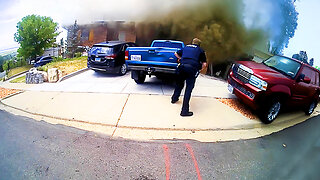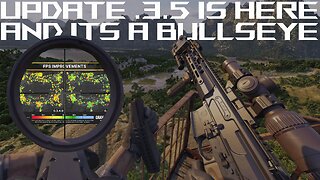Premium Only Content

Conditional Sentences English Grammar For Second and Third Conditional Class # 6
Conditional Sentences English Grammar For Second and Third Conditional Class # 6
Conditional sentences in English grammar are used to express hypothetical situations and their potential outcomes. There are two main types of conditional sentences: the second conditional and the third conditional.
The second conditional is used to talk about unreal or unlikely situations in the present or future. It consists of an if-clause (condition) and a main clause (result). In the if-clause, we use the past simple tense, and in the main clause, we use the modal verb "would" followed by the base form of the verb. For example, "If I won the lottery, I would travel around the world." This construction indicates that the speaker winning the lottery is unlikely or purely hypothetical, and as a result, they would travel.
The third conditional is used to talk about unreal situations in the past and their hypothetical outcomes. It also has an if-clause and a main clause. In the if-clause, we use the past perfect tense, and in the main clause, we again use "would have" followed by the past participle of the verb. For instance, "If she had studied harder, she would have passed the exam." Here, the implication is that she didn't study hard enough, and as a result, she didn't pass the exam.
Both these conditional structures are important for conveying various degrees of likelihood or unreal situations. The second conditional focuses on the present and future, providing a clear distinction between the unreal condition and its potential outcome. The third conditional, on the other hand, looks at the past and presents a hypothetical outcome of a past event that didn't occur.
Mastering these conditional sentences is crucial for effective communication in English as they allow speakers to discuss hypothetical scenarios and their possible results with accuracy and nuance. By understanding and employing these structures, learners can express complex ideas about unreal situations, probabilities, and regrets in a grammatically correct and contextually appropriate manner.
-
 14:53
14:53
Code Blue Cam
2 days agoStranger At the Door Leaves Family Absolutely Terrified
20.4K13 -
 9:06
9:06
TheSaltyCracker
1 day agoWorld's Most Annoying Streamer Gets Arrested on Drug Charges Live
64.5K203 -
 28:44
28:44
itsSeanDaniel
1 day agoCNN Host STUNNED as MAGA Outcast REFUSES to Trash Trump
16.2K14 -
 18:58
18:58
Nikko Ortiz
15 hours agoMcMillan Tac-338 Is LETHAL
62.1K2 -
 13:36
13:36
MattMorseTV
15 hours ago $10.80 earnedTrump is GUTTING their ENTIRE SYSTEM.
17.4K49 -
 2:17:54
2:17:54
Side Scrollers Podcast
20 hours agoAsmongold vs DSP + Metroid Prime 4 CONTROVERSY + Disney DROPS DEI? + More | Side Scrollers
70.2K10 -
 22:26
22:26
GritsGG
14 hours ago4000th Warzone Victory! Most Winning Warzone Player!
13.8K2 -
 11:47
11:47
XDDX_HiTower
17 hours ago $2.30 earnedGZW LEVELS UP HARD WITH A PERFORMANCE AND GOL BULLSEYE
15.6K2 -
 31:59
31:59
Stephen Gardner
11 hours ago🔥TOP Dems CAUGHT in Epstein Payoff Scandal + Trump $2000 Check UPDATE!
22.5K76 -
 2:25:05
2:25:05
The Pascal Show
1 day ago $4.88 earned'THERE'S NOTHING TO HIDE?!' Trump SUDDENLY Urges House Republicans To Vote Release Epstein Files
15.6K8